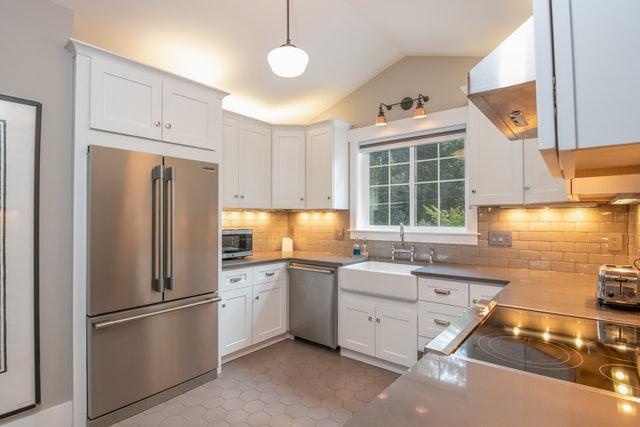One of the frequent questions we receive from prospective new homeowners is how long they can expect the appliances that are remaining in the home they are purchasing are expected to last.
Consumer Reports did a survey of their members, and most consumers expect that a major appliance should last about 10 years, which is right in line with what most manufacturers say as well.
However, just because the expectation is around a decade, it doesn’t mean that your appliances will remain trouble-free during that time.
It’s probably not surprising that the larger appliances tend to last a bit longer on average, and smaller ones a bit shorter. HVAC systems usually have a lifespan closer to 15-20 years; while things like trash compactors and microwaves may be closer to seven, and for a small toaster you may be lucky to see five.
If you’re unsure of the age of your appliances, you can usually find this information on the sticker that contains the serial number as most modern appliances list the date clearly on that sticker. For older appliances, you may need to decode the serial number, which you can usually do to determine the age with a bit of Googling.
One of the best things you can to do extend the life of your appliances is to provide regular maintenance, just like you do (hopefully) for other parts of your home. Regular maintenance can help extend your appliance’s working age to the maximum. If an appliance does break, depending upon the age sometimes it’s more economical to replace an old appliance than it is to repair it.
Even though appliances are usually some of the major investments you’ll encounter more frequently in your home since they will all need replacing at some point, that replacement may actually save you money in the long term. According to the U.S. Department of Energy, a new refrigerator with an Energy Star label uses 15% less energy than non-qualified models, 20% less than required by current federal standards, and 40% less energy than a model sold in 2001. That results in lower bills over the lifespan of your new appliance.
Your home inspection will most likely cover basic inspection of built-in appliances – the ones that homeowners usually do not take with them to the next home – to verify their operation. This usually includes built-in appliances in the kitchen, including wall ovens, ranges, surface cooktops, built-in microwaves, dishwashers, and disposals but not removable appliances such as refrigerators, clothes washers, clothes dryers, etc. that usually move with the prior owner. However, those items may be inspected to be in working order with no apparent defects – the two items that a home inspector normally checks for an appliance – if they have been negotiated as part of the home sale.
Some things that home inspectors usually do not inspect include:
- Appliance thermostats, including their calibration, adequacy of heating elements, self-cleaning oven cycles, indicator lights, door seals, timers, clocks, timed features, and other specialized appliance features.
- Operate, or confirm the operation of every control and feature of an inspected appliance.
However, appliances shouldn’t be a deal breaker when you have a home inspection. Most are usually a minor cost in relation to the cost of a home, and since they all do eventually reach end-of-life, as a homeowner you do need to budget for their eventual repairs and replacement.
For commercial property inspections in the Dallas/Fort Worth area, including a thorough and informative home inspection report, learn more at
or request a quote for a commercial inspection at
682-351-2267



